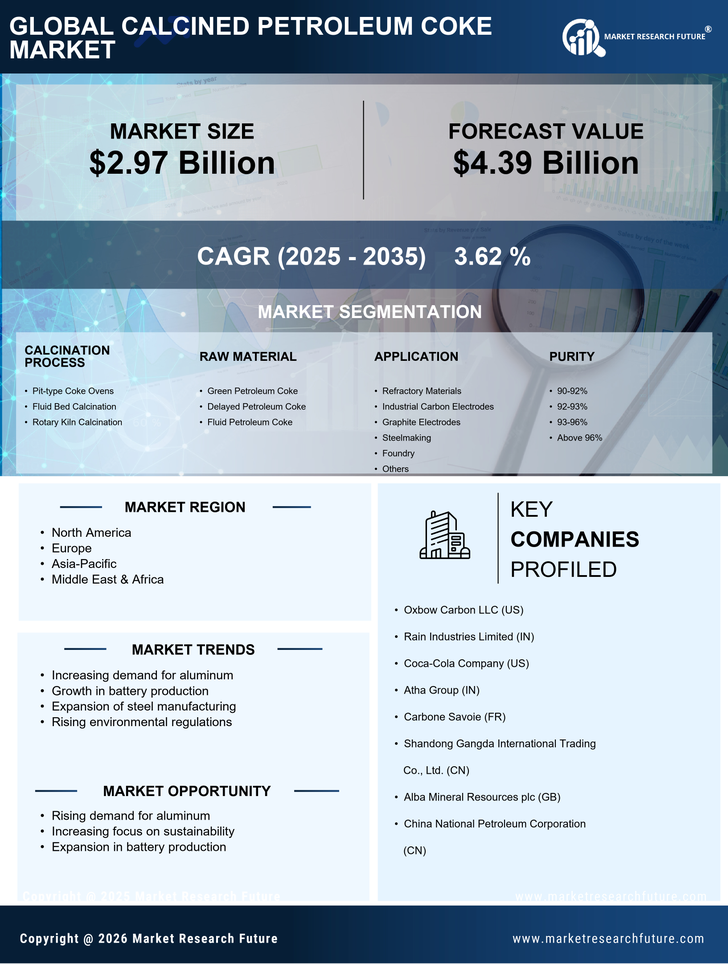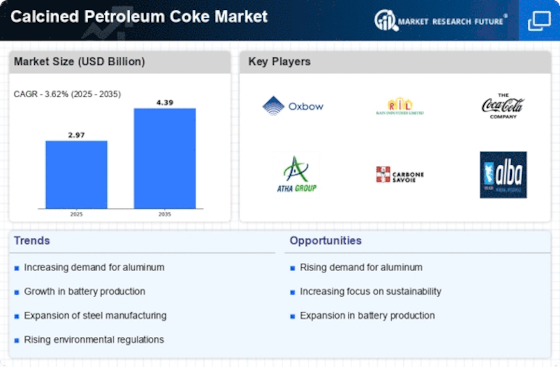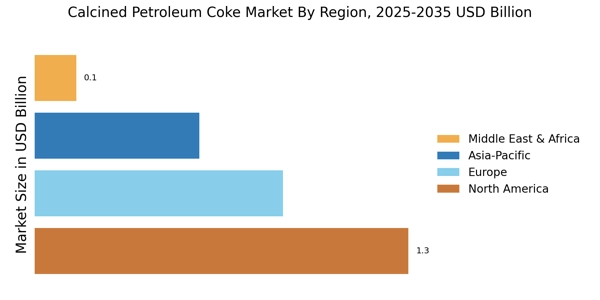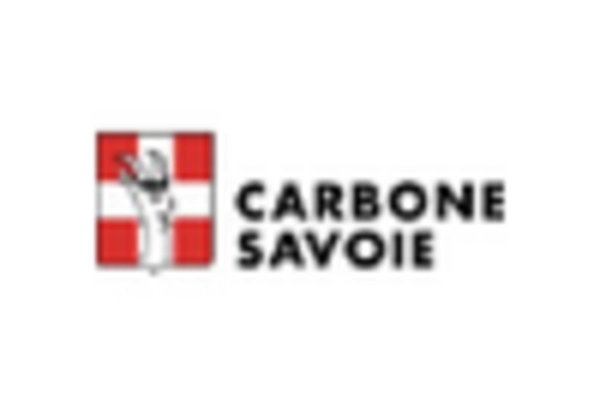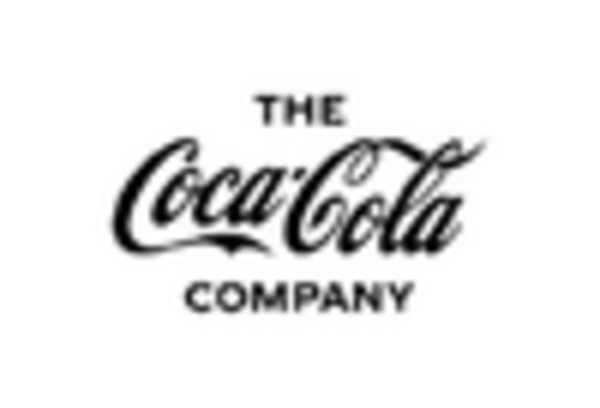Growth in Steel Production
The Calcined Petroleum Coke Market is significantly influenced by the growth in steel production, as calcined petroleum coke serves as a crucial ingredient in the steelmaking process. The demand for steel is projected to rise due to infrastructure development and urbanization trends, particularly in emerging economies. Recent data indicates that global steel production is anticipated to grow at a rate of approximately 3% annually. This increase in steel production is likely to drive the demand for calcined petroleum coke, as it is essential for producing high-quality steel. Consequently, the Calcined Petroleum Coke Market stands to benefit from the expanding steel sector, reinforcing its position in the market.
Rising Environmental Regulations
The Calcined Petroleum Coke Market is influenced by the increasing stringency of environmental regulations aimed at reducing carbon emissions. Governments across various regions are implementing policies that encourage the use of cleaner production methods and materials. This shift is prompting industries to seek alternatives that align with sustainability goals. Calcined petroleum coke, being a byproduct of petroleum refining, is often viewed as a more environmentally friendly option compared to other carbon sources. As industries adapt to these regulations, the demand for calcined petroleum coke is likely to rise, positioning the Calcined Petroleum Coke Market favorably in a landscape increasingly focused on sustainability.
Expansion of Battery Manufacturing
The Calcined Petroleum Coke Market is poised to gain traction from the burgeoning battery manufacturing sector, particularly in the context of electric vehicles and renewable energy storage solutions. Calcined petroleum coke is utilized in the production of anodes for lithium-ion batteries, which are integral to the performance and efficiency of these energy storage systems. As the demand for electric vehicles continues to escalate, driven by environmental concerns and government incentives, the need for high-quality anode materials is expected to increase. Market forecasts suggest that the battery manufacturing sector could witness a growth rate exceeding 20% in the coming years, indicating a substantial opportunity for the Calcined Petroleum Coke Market to capitalize on this trend.
Technological Innovations in Production
Technological advancements in the production processes of calcined petroleum coke are contributing to the growth of the Calcined Petroleum Coke Market. Innovations such as improved calcination techniques and enhanced quality control measures are enabling manufacturers to produce higher-grade products with better performance characteristics. These advancements not only enhance the efficiency of production but also reduce waste and energy consumption. As industries seek to optimize their operations and improve product quality, the demand for technologically advanced calcined petroleum coke is expected to increase. This trend suggests that the Calcined Petroleum Coke Market will likely experience a positive impact from ongoing innovations in production technology.
Increasing Demand from Aluminum Industry
The Calcined Petroleum Coke Market is experiencing a notable surge in demand, particularly from the aluminum sector. This is primarily due to the essential role that calcined petroleum coke plays as a carbon source in aluminum production. As the aluminum industry continues to expand, driven by applications in automotive, aerospace, and construction, the need for high-quality calcined petroleum coke is expected to rise. Recent estimates indicate that the aluminum production is projected to grow at a compound annual growth rate of approximately 4% over the next few years. This growth trajectory suggests that the Calcined Petroleum Coke Market will likely benefit significantly from the increasing consumption of aluminum, thereby enhancing the overall market dynamics.
